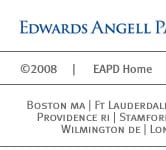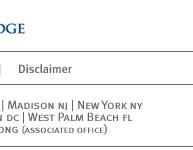
An Update
on Freezing Injunctions:
Non-disclosure and Risk of Dissipation
Iman Said v Pegasus and
Mobil Cerro Negro v Petroleos de Venezuela
Freezing injunctions are one of English law's most powerful weapons, available when there is a real risk that a defendant will conceal assets to avoid payment of a judgment. They are typically obtained at the outset of a case, and are intended to secure a defendant's assets, up to the value of the claim, pending judgment. Obtaining and maintaining a freezing injunction can sometimes bring a swift and advantageous settlement. If it does not, the claimant can litigate the case with comfort that assets will be available to satisfy any judgment that is obtained.
Applications for freezing injunctions are typically made by a claimant without the knowledge of the defendant, ensuring that it cannot conceal its assets prior to the making of the order by the Court. In these circumstances, the Court requires a claimant properly to investigate the facts, and fairly to present the evidence on which it relies. A claimant must do its best to anticipate and explain any potential defences to the claim. A judge is "forced to rely heavily on the applicant to place before the Court all the information in his possession that the judge might reasonably wish to have before him when coming to a decision." (Iman Said Adbul Aziz Al-Rawas v Pegasus [2008] EWHC 617 (QB).
In addition, a claimant is required to undertake to compensate a defendant if it is later found that the freezing order was wrongly obtained, and sometimes to support that undertaking with security.
A Case of Non-disclosure
The case of Iman Said v Pegasus is a recent example of material non-disclosure justifying the discharge of a freezing order, and an award of significant damages to the Defendants.
The Claimant obtained a freezing order (and a search and seizure order) in the English High Court in support of proceedings in the Supreme Court of Mauritius, against a company and its directors accused of breaching the Companies Act of Mauritius for the improper purpose of diluting the Claimant's shareholding in the company. The Claimant and her husband had supported the action with affidavits that asserted that loans made to the company by one of its directors were highly questionable, if not fraudulent. The unavoidable implication of this was that the defendants had acted in bad faith. This had persuaded the Court to grant the freezing order. However, it transpired that the Claimant's husband, who had sworn an affidavit in support of the application, had failed to disclose that genuine loans of the same nature had been made in the past. That information was highly material to the application for a freezing injunction, and the failure to disclose it was regarded by the Court as serious and persistent, and intended to raise suspicions as to the existence and basis of the loan when, in truth, such suspicions were not properly grounded.
The consequences of the non-disclosure were far-reaching. The freezing order was discharged. The Defendants were awarded general damages for loss of personal and business reputation. On top of this, aggravated damages were awarded due to the bad faith of the Claimant. Damages were also awarded for 'lost management time' for disruption to the business. Moreover, the Court ordered that the Claimant's husband should be joined to the proceedings for the purpose of obtaining an order for costs against him
Risk of Dissipation
In Mobil Cerro Negro v Petroleos De Venezuela [2008] EWHC 532 (Comm), the Claimant obtained an order from the English High Court freezing the assets of the national oil company of Venezuela to a value of $12 billion, in support of an arbitration to be held in New York.
The Claimant's disclosure was full and correct. However, the freezing injunction was discharged on appeal. The Court reiterated that, "worldwide freezing orders are made only sparingly. In cases where they are made there is usually compelling evidence of serious international fraud." Here, there was no evidence of a real risk of dissipation of assets (or even fraud). The Court therefore found that the case was not sufficiently "urgent" for the grant of a freezing order.
Comment
Freezing injunctions are formidable orders and
will be granted by the Court to assist claimants seeking to secure assets
that otherwise might be concealed (and can in appropriate cases be combined
with search and seize orders and orders for disclosure of evidence by
third parties such as banks). However, claimants seeking freezing injunctions
must do their very best to comply with the high duty of full and frank
disclosure, and carefully consider whether the evidence does justify the
making of the order.
Contacts
The information in this newsletter is for general guidance only and is not intended to be a substitute for specific legal advice. If you would like any further information please contact:
James Maton
Partner, Commercial Litigation - London
t: +44 (0) 20 7556 4547
e: JMaton@eapdlaw.com
Jonathan McDonald
Trainee - London
t: +44 (0) 20 7583 4055
e: JMcDonald@eapdlaw.com






